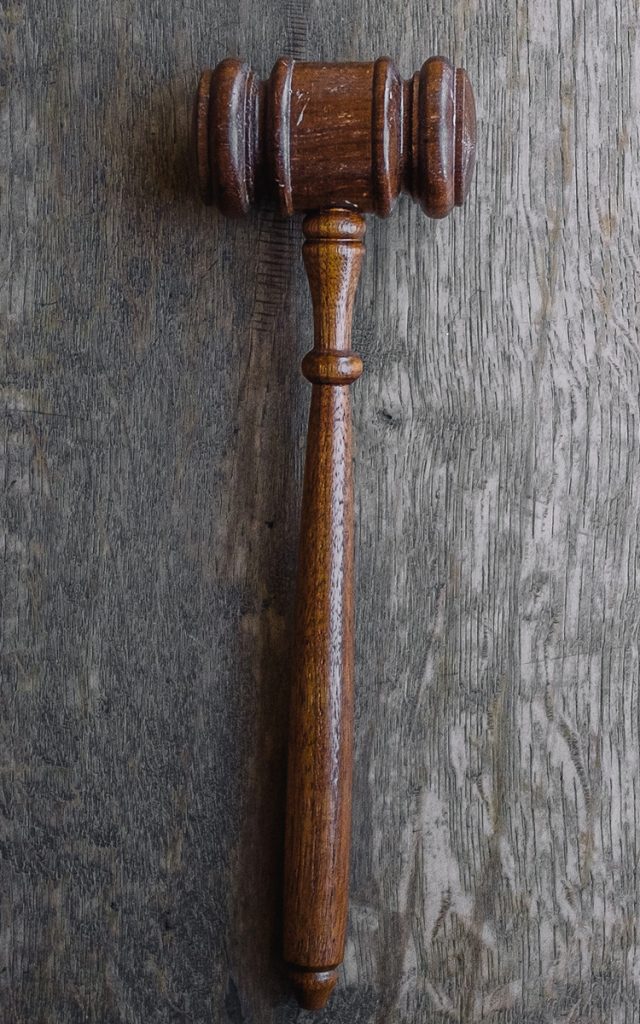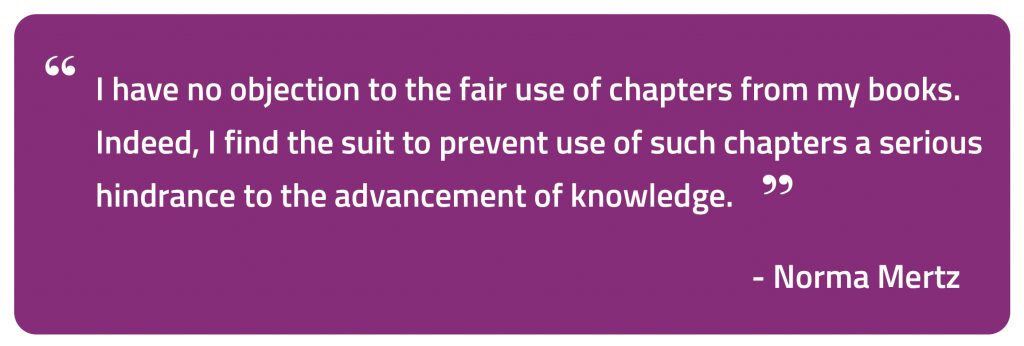
On Monday, a district court in Georgia issued a decision in the Cambridge University Press v. Becker case, concluding that 37 of the 48 infringement claims at issue in the case are fair use. This is the latest decision in a case that began in 2008 when publishers sued Georgia State University (“GSU”), alleging that faculty at GSU infringed Cambridge University Press’ and other publishers’ copyrights by assigning chapters from scholarly books to their students via secure course websites. The case has bounced back and forth between the district court and the Eleventh Circuit, with the Eleventh Circuit reversing and remanding the case to the district court twice. For details on the history of the litigation here, see this summary by Krista Cox.
In 2017, we filed an amicus brief with the Eleventh Circuit in support of GSU’s position that limited use of copyrighted material for nonprofit educational purposes falls within fair use. In our brief, we discussed how our members’ experiences accord with the district court’s conclusion that academic authorial incentives to create scholarly book chapters would not be impaired by a fair use ruling.
We explained that the primary motivation of academic authors to write scholarly book chapters is generally to share the knowledge and insights they have gained, and the type of reward that academic authors have generally sought and hoped to attain through writing scholarly book chapters is enhancement of their reputations. Bolstering the case for fair use, we discussed how the use of fact-, method-, and theory-intensive scholarly book chapters assigned primarily because of the originality of ideas, theses, research, data, and methods they contain, rather than on originality of expression, should tip in favor of fair use.

Many of our members are academic authors, and one of our members is the author of a chapter at issue in the case. Our brief highlighted the views of several authors of book chapters at issue in the case who reflected on the benefit of fair use to their goals of reaching readers and contributing to academic discourse. Norma Mertz, Professor of Higher Education Administration at University of Tennessee, Knoxville, wrote “I have no objection to the fair use of chapters from my books. Indeed, I find the suit to prevent use of such chapters a serious hindrance to the advancement of knowledge.”
Other authors pointed to the benefits of publishing academic works. Douglas Harper, Professor Emeritus of Sociology at Duquesne University, wrote “There is reputational benefit… to doing this work. … The point of this work is to share it!”
Many of our members believe that this limited use of copyrighted content in a nonprofit educational setting meets the test for fair use. We applaud the district court’s latest decision finding the majority of the uses of unlicensed excerpts of copyrighted works in the e-reserves to be fair.
Discover more from Authors Alliance
Subscribe to get the latest posts sent to your email.
